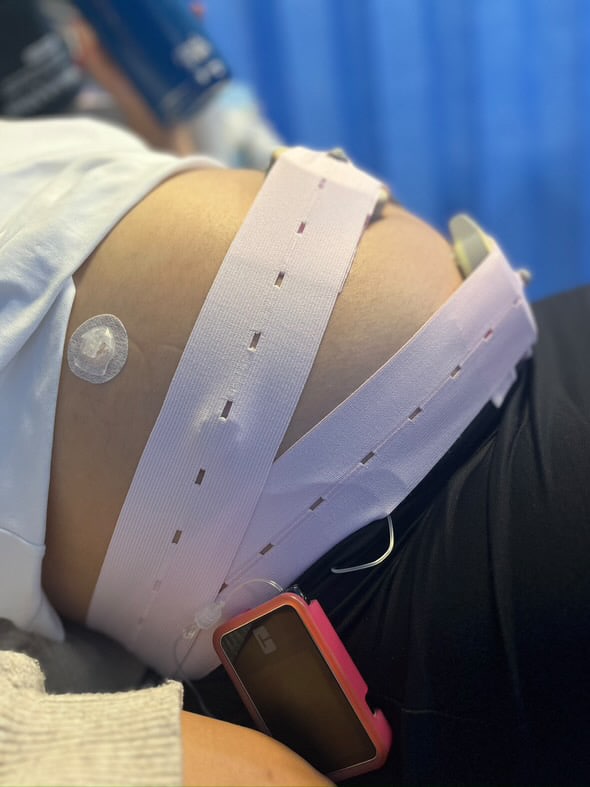Pregnancy What is Cytomegalovirus (CMV)?
What is Cytomegalovirus (CMV)?

Chances are you’ve never heard of cytomegalovirus, even though you’ve likely had it. It’s a very common virus in the herpes virus family with 50 per cent of Australians having been infected by young adulthood and up to 85 per cent by 40 years of age.
If you get a preconception blood test with your GP, they’ll likely test for CMV and will be able to tell you if you’ve had it in the past (read: 5 Things to do Before You Conceive).
A standard blood test will show antibodies that indicate past infection; almost half of all pregnant women in Australia are thought to have had it prior to conceiving. Like most virus in the herpes simplex family, once you’re infected the virus lays dormant inside the body, hence you’ll carry it for life.
If you’re already pregnant and blood results show you haven’t had it, you can expect your GP to discuss the importance of hand hygiene, especially if you work in the childcare sector as peaks of infection occur in children under two.
CMV in Pregnancy
When infected with CMV, most pregnant women have no symptoms. However, cytomegalovirus can be harmful to your unborn baby if you’re infected for the first time in early pregnancy.
For women who are infected for the first time during their pregnancy, approximately one in three will pass the CMV infection on to their baby. This is known as congenital CMV (cCMV) and infected babies are at higher risk of being born with an injury to the developing brain, sometimes causing hearing loss or intellectual disability. In Australia, more than 400 babies every year are born with a life-long disability caused by CMV.
How to Prevent CMV
Like many viruses, Cytomegalovirus is passed on via bodily fluids – saliva, tears, urine and mucous. Prevention is as simple as practising really good hygiene which will also help you avoid the common cold and flu.
- Wash hands thoroughly for 15 seconds with soap and water and dry well. This is particularly important after contact with urine or saliva of young children during activities like changing nappies, blowing noses, or handling children’s toys.
- Avoid contact with saliva when kissing a child (kiss on the forehead)
- Don’t share drinks, cutlery or tableware
What are the Symptoms of CMV?
For many children with CMV, they’ll often be asymptomatic (they have no symptoms). A primary infection in adults (and some children) will usually cause a fever and mild hepatitis. Healthy pregnant women are not at special risk for disease from CMV infection, but between 1 per cent and 5 per cent are infected for the first time during their pregnancy.
Treatment for CMV
Generally, bed rest and plenty of fluids are all that’s required (similar treatment to a common cold). However, in pregnancy, when your immune system is more compromised, you may require testing and monitoring so it’s best to connect with your GP as soon as you start feeling unwell.
Listen to episode 467 with Gemma who contracted CMV in early pregnancy with her twins.
Categories
Related Products
-
Birth Meditations
$49.00Narrated by Sophie Walker, these soothing and informative meditations help you feel supported and confident around birth.
Get your copy of our Perineal Massage Guide in your inbox
Keep Reading
We think you might enjoy these articles

The Emergency C-Section Checklist You’ll Be Thankful You Had

Pre-existing Diabetes and Pregnancy: What You Need to Know

Harnessing the Power of Acupressure: A Natural Approach to Preparing for Birth

Thoughtful Christmas Gifts for your Pregnant Friend.

What is Pre-eclampsia?

Non-invasive Prenatal Testing (NIPT)
@AustralianBirthStories
Follow along with us
@AustralianBirthStories
Follow along with us
@AustralianBirthStories
Follow along with us
@AustralianBirthStories
Follow along with us
@AustralianBirthStories
Follow along with us
@AustralianBirthStories
Follow along with us
@AustralianBirthStories
Follow along with us
@AustralianBirthStories
Follow along with us
@AustralianBirthStories
Follow along with us
@AustralianBirthStories
Follow along with us
@AustralianBirthStories
Follow along with us
@AustralianBirthStories
Follow along with us


